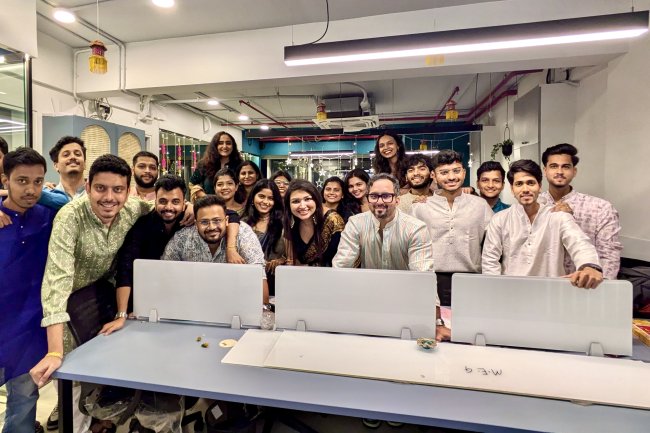How ECTS Credits Strengthen Universities and Schools Through Accreditation, Branding, and Revenue Generation

In today’s global education landscape, international exposure and accredited learning have become critical for both schools and higher education institutions. Students preparing for global opportunities — whether pursuing higher studies, employment, or research — are increasingly seeking credentials that carry international recognition.
One of the most powerful tools to achieve this is the ECTS (European Credit Transfer and Accumulation System)–credited AI & Innovation course, offered by MinnaLearn (Finland) in collaboration with Opulence Consult (India). With applications across schools (Grade 10+ onwards) and universities (BBA, MBA, Engineering, Commerce, etc.), this course is not just about Artificial Intelligence — it’s about international branding, accreditation readiness, and revenue generation for institutions.
Why ECTS Courses Are Relevant Today
The ECTS framework, born out of the Bologna Process, is the gold standard of higher education in Europe. It allows students’ achievements to be officially recognized across 48+ European Higher Education Area (EHEA) nations.
Introducing ECTS-accredited courses in Indian institutions ensures that:
- Students gain globally recognized credentialsalongside their regular degree.
- Institutions strengthen their case for national accreditations (NAAC, NBA, UGC, AICTE).
- Schools and universities position themselves as internationally tied-up campuses, ready to compete with global standards.
Implementation for Schools (Grade 10+ Students)
For students in classes 10–12, exposure to AI & Innovation through an ECTS-certified course can be transformative.
- Profile Building for Abroad Studies: Students preparing for undergraduate admissions in the UK, Europe, USA, or Canada can highlight this as part of their academic achievements.
- Early Global Exposure: Access to an official academic transcriptfrom a European institution at the school level is rare, giving these students a massive edge.
- Skill Development: Even for those continuing in India, exposure to AI applications in healthcare, business, sciences, and technologyprepares them for competitive entrance exams and higher studies.
Benefits for CBSE, ICSE, and International Schools (IB/IGCSE)
For CBSE, ICSE, and international schools, offering such internationally accredited programs creates multiple layers of recognition and advantage:
- Government Accreditations (CBSE/ICSE): Schools showcasing international tie-ups and innovative pedagogy can strengthen their inspection reports and evaluation ratings.
- IB & IGCSE Recognition: These boards emphasize global outlook and innovation; ECTS-accredited courses directly align with their mission of 21st-century learning.
- NAAC/NABET for Schools: Accreditation bodies like NABET (National Accreditation Board for Education and Training)increasingly look for global partnerships. Offering this course demonstrates compliance with modern, internationally benchmarked learning.
- Marketing & Branding: School owners can promote their institution as a globally connected, innovation-driven campus, attracting more parents and higher-quality admissions.
- Teacher Development: Schools can use this program as part of faculty development initiatives, showing accreditors that staff are aligned with global learning standards.
Simply put, implementing this course enhances the school’s reputation, strengthens its government accreditation profile, and improves market competitiveness in attracting students.
Implementation for Universities (BBA, MBA, Engineering, Commerce, etc.)
At the university level, embedding an ECTS-accredited AI & Innovation course provides several layers of advantage:
- Academic Value-Add: Students gain internationally verifiable academic creditsalongside their degree.
- Interdisciplinary Relevance: The course benefits MBA and BBA students(strategic decision-making with AI), engineering students (technical applications), and commerce students (financial analysis, innovation, digital transformation).
- Placement Edge: Graduates with an ECTS-certified transcript stand out in recruitment drives, both in India and abroad.
- SOPs and Scholarships: Universities can directly market the course as a scholarship-enhancing credentialfor students seeking admission abroad.
Accreditation Benefits for Institutions
Aligning with ECTS-accredited courses provides clear benefits when applying for national and international accreditations:
- NAAC & NBA: Adds weight under “International Collaboration” and “Innovation in Curriculum.”
- UGC & AICTE: Fits into the National Education Policy (NEP 2020), which encourages global tie-ups and multidisciplinary exposure.
- Schools (CBSE/ICSE/IB/IGCSE): Strengthens recognition reports and makes institutions more attractive for government accreditation, ranking, and parental trust.
- International MoUs: Institutions can formalize branding collaborations with European universities, enhancing their global profile.
Branding and Marketing Opportunities
An institution offering an ECTS-accredited course in AI & Innovation can market itself as:
- A globally connected campuswith international academic tie-ups.
- A scholarship-ready institution, helping students secure admissions and funding abroad.
- A future-ready school/universitypreparing students for emerging industries.
This creates a unique positioning in a competitive market, helping schools and universities attract more enrollments and partnerships.
Revenue Generation Opportunities
Beyond academic and branding benefits, this initiative creates sustainable revenue streams:
- Institutions can charge a nominal fee for enrollment into the course while keeping it affordable.
- A revenue-sharing model with Opulence Consult ensures seamless delivery and certification.
- With scale (hundreds of students per batch), institutions can generate significant additional income annuallywith minimal effort.
For example: if 200 students per year enroll, institutions could generate lakhs in revenue, while boosting student outcomes.
Conclusion: A Win-Win for Students, Schools & Universities
Implementing an ECTS-accredited AI & Innovation course is more than just adding a new program — it is a strategic leap forward.
- For students, it means stronger profiles, better scholarships, and international recognition.
- For schools, it means improved government accreditation outcomes (CBSE, ICSE, IB, IGCSE, NABET), stronger branding, and higher parent trust.
- For universities, it means better NAAC/NBA/UGC ratings, stronger placements, and more international MoUs.
- For management, it means sustainable revenue generationand positioning as a globally competitive institution.
By partnering with MinnaLearn (Finland) and Opulence Consult (India), schools and universities can lead the way in preparing students for a global future.
Get in touch with Saurebh Baviskar (Director, Opulence Consult)
???? +91 9904434447
???? www.opulenceconsult.in
LinkedIn: https://www.linkedin.com/in/saurebhbaviskar/
What's Your Reaction?




















